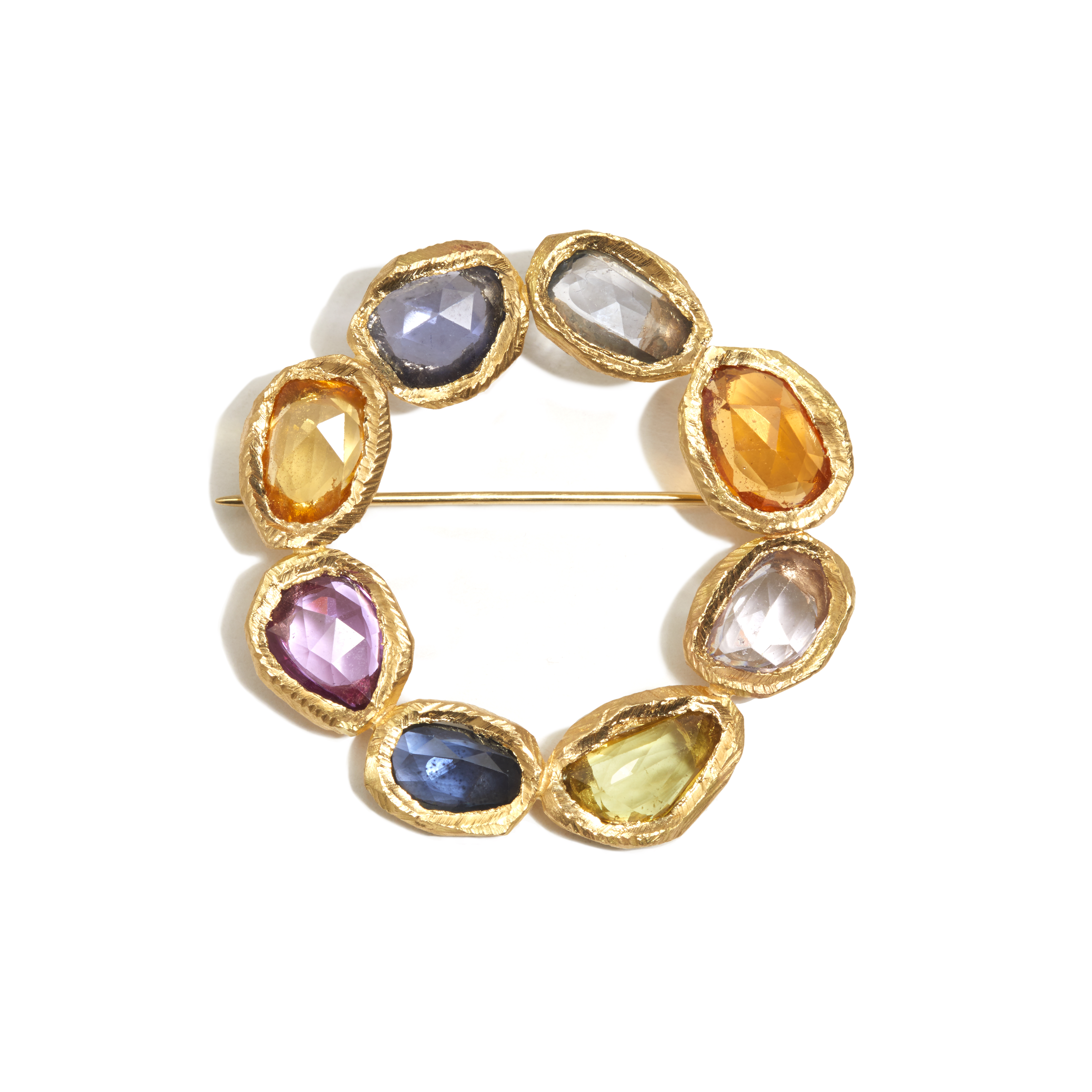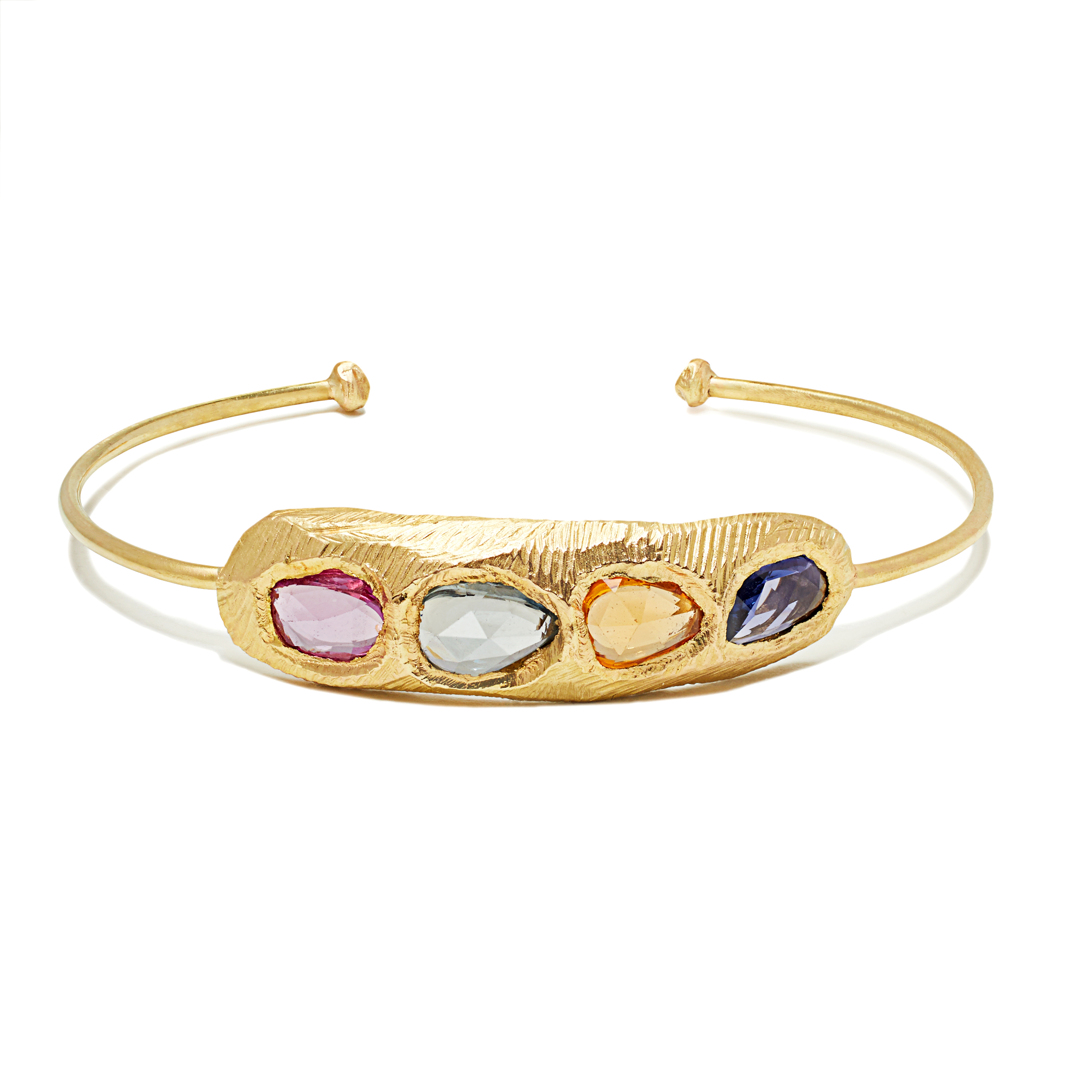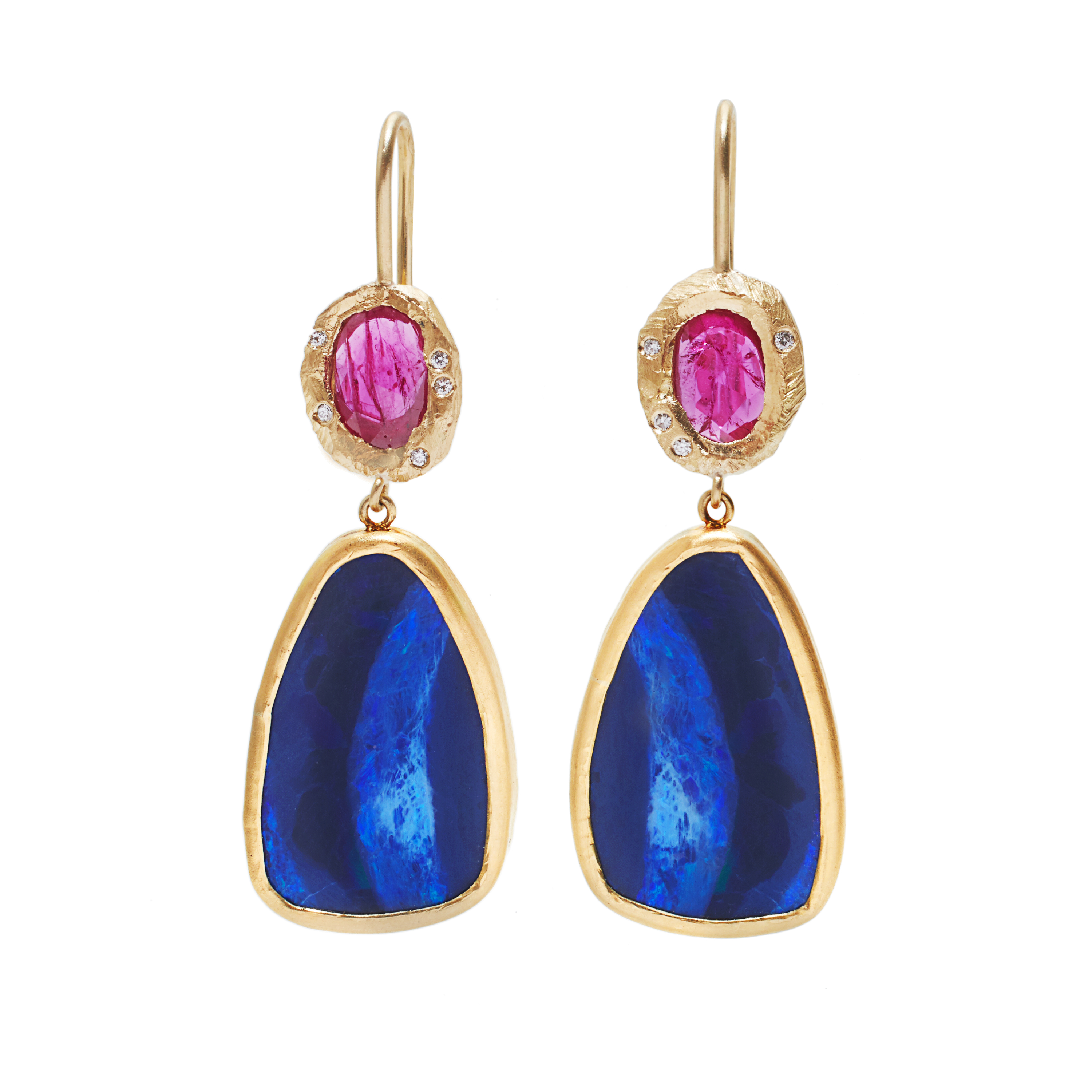The natural beauty of Page Sargisson’s jewelry
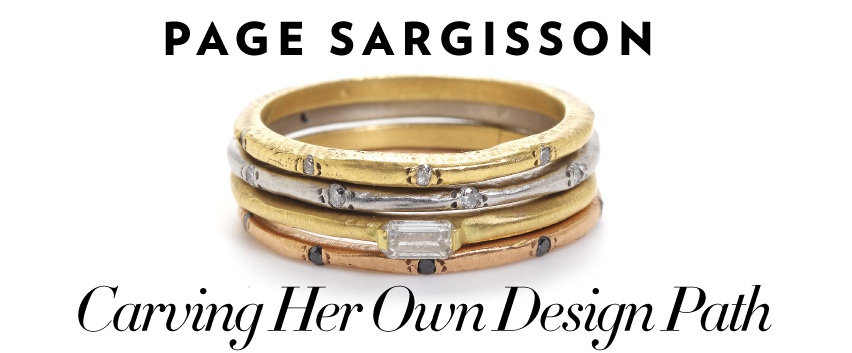
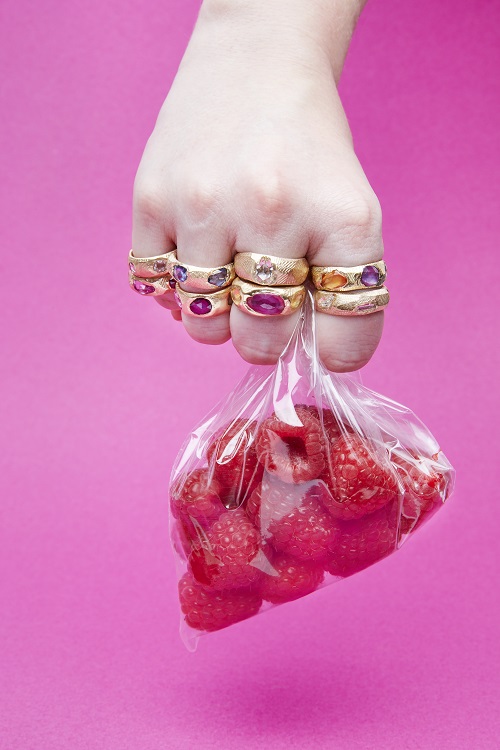
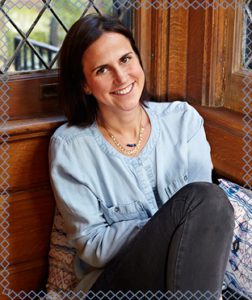 From the time she was a young girl, Page Sargisson’s family encouraged her creativity. She knit her own dolls’ clothes and batiked scarves. (Pretty impressive to a person like me, who only knew how to dye clothes, as well as the bathtub, purple and fuchsia with RIT dye).
From the time she was a young girl, Page Sargisson’s family encouraged her creativity. She knit her own dolls’ clothes and batiked scarves. (Pretty impressive to a person like me, who only knew how to dye clothes, as well as the bathtub, purple and fuchsia with RIT dye).
Page also grew up working in her grandfather’s carpentry studio, where she learned how to carve and sand wood. This imaginative flair led her to repurpose found objects and transfer textures from textiles, Indian wood and old letterpress blocks into wax, carve the patterns more deeply and then cast them into gold. She then finishes each piece with what she calls ‘the brushstrokes’ —which means she allows some of the imperfections of the filing or her handwork to show and be part of the beauty of her collection.
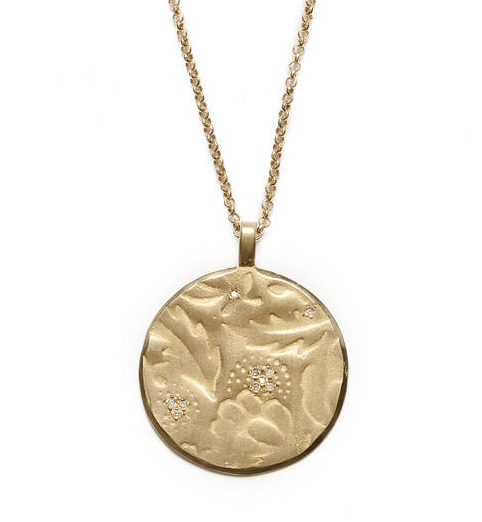
Page’s 10K gold medallion with a pattern from an Indian wood block
But before her pieces grew into a collection, designing started as a hobby after graduating from Brown and working a corporate job. “My childhood passion was ignited again and there was no turning back.” In 2003, she launched Page Sargisson Jewelry after moving from San Francisco to New York, where she took jewelry making and wax carving classes so that practical skill would match her affinity for the tactile and organic hand of her designs. Page’s pieces are all made in NYC in recycled metals.
Here we chat with Page about the early years and how she has grown and evolved:
I remember your first collection and how beautiful the patterns from the Indian wood blocks looked in gold. What drew you to them?
“A few things. I loved the fact that you could find different motifs in each block to impress into the wax. That gave me a lot to work with. I had a wonderful time scouring for the old blocks at flea markets and fairs. I have an affinity for anything that is used ingeniously in a previous life, which I can then translate it into jewelry. The patterns I use come from a different time and place, yet are current and relevant today. Additionally, when I was younger, I learned wood carving from my grandfather and I could use what he taught me and interpret his art into my own wax carvings. It all seemed to grow organically.”
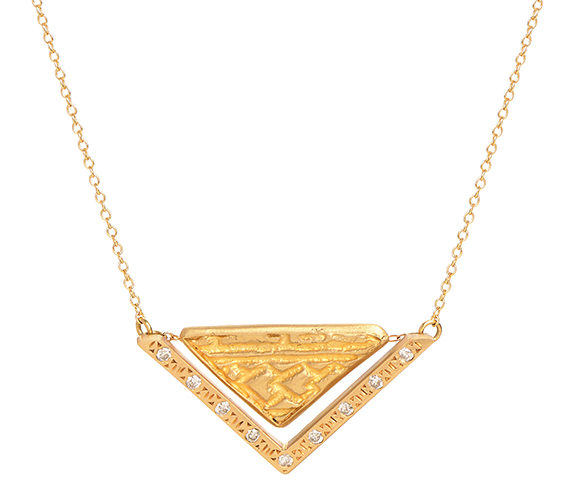
Page’s tribal shaped gold necklace with wood block motif and diamonds
What were some of you next collections and what was some of the imagery you used?
“The next patterns I captured in my designs were also from found objects including 1920’s accounting ledgers and1960’s calendars. We would then personalize the calendars for our clients by placing a small birthstone on the date of the calendar in which they were born. From here we got into astrological symbols and introduced more of the Indian wood motifs.”
How did you begin getting into colored stones?
“It started quite simply and naively—I wanted to wear more color on my hands and made a few rings for myself in 18K gold. I chose really irregular rose cut multi-color sapphires because I am partial to pieces that have an antique feel. My retailer buyers loved them and wanted me to create more for the stores and their customers. And so I did. The next part was adding the necklaces and bracelets that complimented the rings and growing the initial concept into a full collection.”
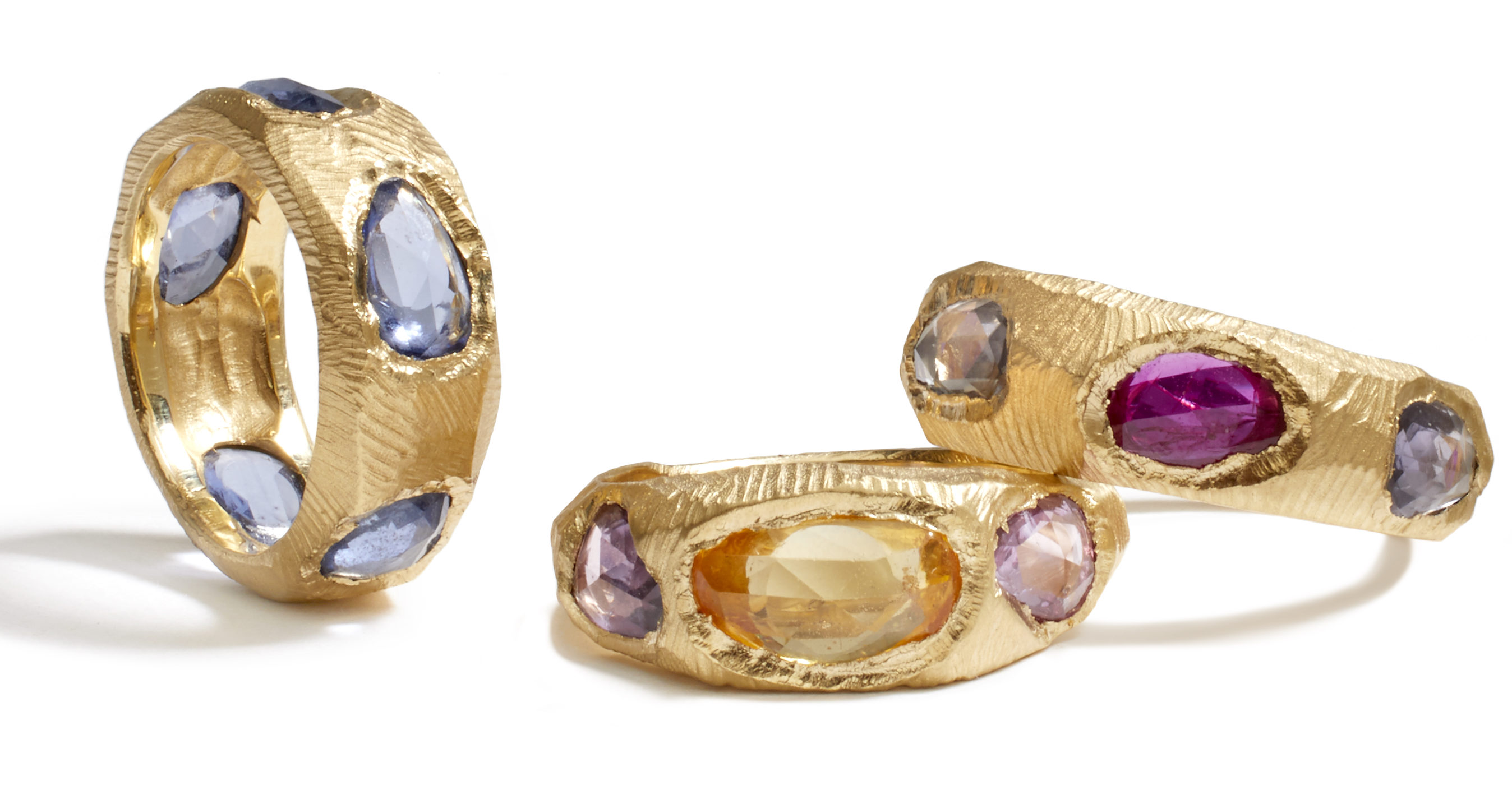
Page’s organic rings of colored irregularly shaped rose cut sapphires
What is the process you use for these rustic settings and style of rings?
“I impress the stones into the wax and them pop them out. This way when the wax goes for castings, the placement of the stones I have laid out for each piece is ready to be set. It’s very different than casting the stones in the wax, which is what some clients originally thought I was doing. Once I got the process down, I began adding necklaces and bracelets.”
- A brooch set with irregularly shaped rose cut sapphires.
- A bracelet set with irregular shaped rose cut sapphires
- Multi-colored sapphire drop earrings
Describe what you love about this collection?
“I always have thoughts of what I want to design rumbling around in my head ,but having the money, confidence and reason to make these ideas into whole collections is a different story. But this collection I knew was going to be a hit. What I love about it is the same thing I think the women who are buying the pieces are attracted to: The 18K gold heavy settings, irregular cuts of the stones, the perfectly imperfect finishing and the overall look which evokes a feeling of the past.”
Why does that appeal to both you and your customers?
“Antique pieces created by hand were often set with stones that would be lying on some jewelers’ workbench. I think that my pieces like those of the past offer the one-of-a-kind or very intimate feeling that women are looking for. There is so much ‘fast fashion’ at the moment that designs with someone’s distinctive hand and aesthetic is a big draw for customers who want jewelry with lasting power and a vision that goes beyond today.”

Irregular diamonds set in heavy organically shaped 18K gold rings
Do you see mixing up pieces in this collection with antique pieces?
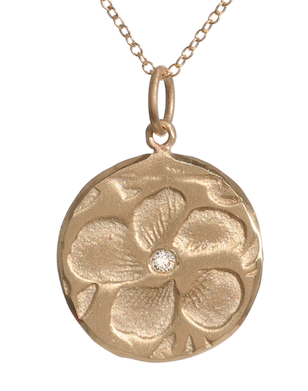
Page’s medallion of a violet motif from an Indian wood block pattern
“Definitely! I do it—one of the favorite combos I choose is an old slide chain layered with one of my sapphire pendants and the two look amazing together. I have customers that mix different time periods. Anything goes. I don’t believe in rules when it comes to wearing old and new or different designers mixed together.”
Are there any pieces you wear all of the time?
“Gold thin textural bangles which I made 12 years ago. I wear them with everything. There is also a locket I finished about 8 months ago and I have been wearing it with everything since. I have tried small earrings but I keep going back these big textured gold hoops I made a few years back. I just look better in big earrings although I do love some of my new colored drop styles!”
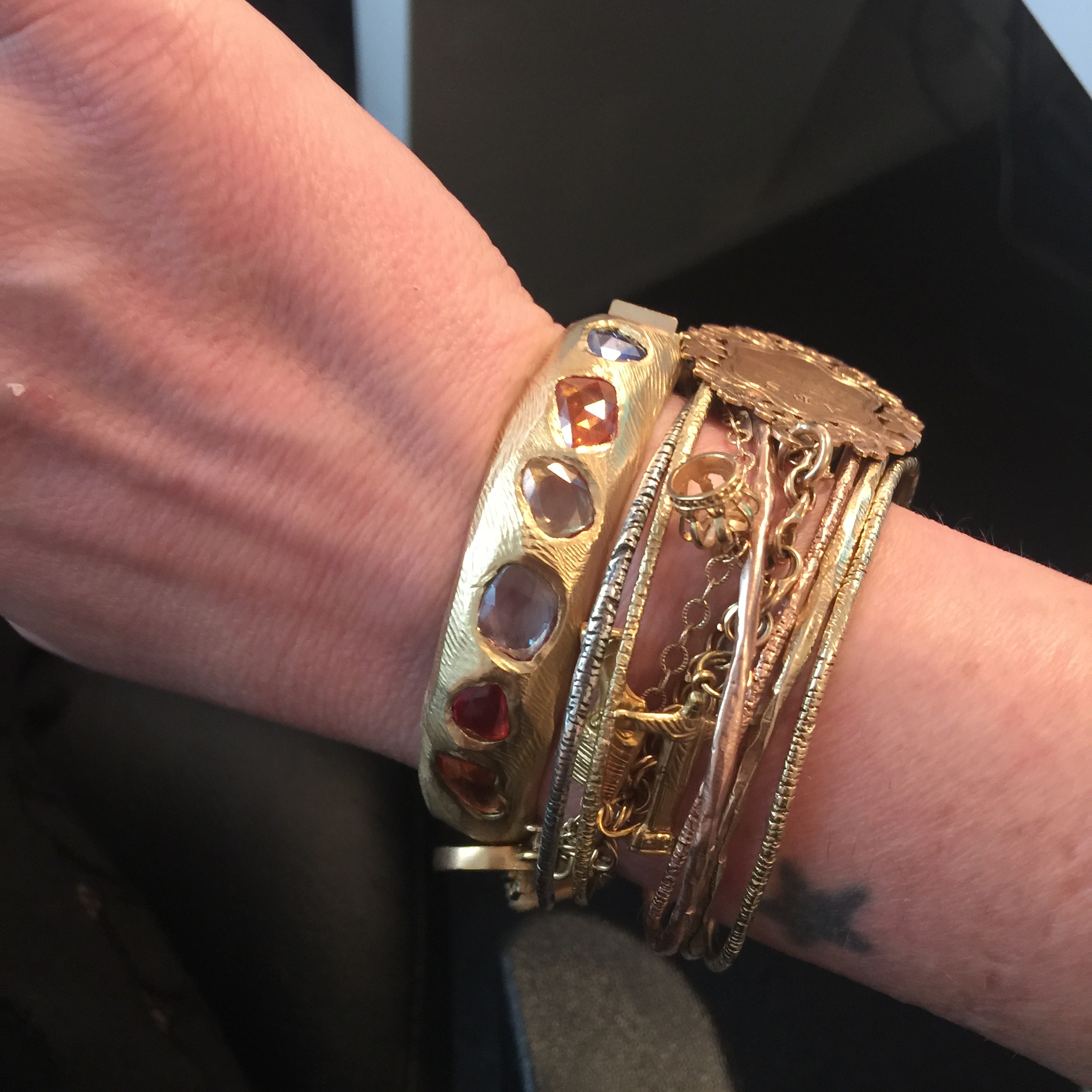
Page’s wrist with irregular shaped rose cut sapphire 18K gold bracelet, bangles Page designed 12 years ago and her mom’s charm bracelet
You didn’t mention rings?
“Those I stack and wear on different finger and try something new with as much as possible. I love playing with rings and new combinations. It is the place I get most creative with myself. This is with the exception of my engagement ring and wedding band. I wear them both on my left hand and nothing else on that hand. I designed the engagement ring and wear one of Cathy Waterman’s ultra thin, delicate and super charming platinum and diamond wedding bands.”
Page Sargisson’s collection is much like the designer herself: a natural beauty inside and out, down-to-earth, accessible and brimming with creativity.
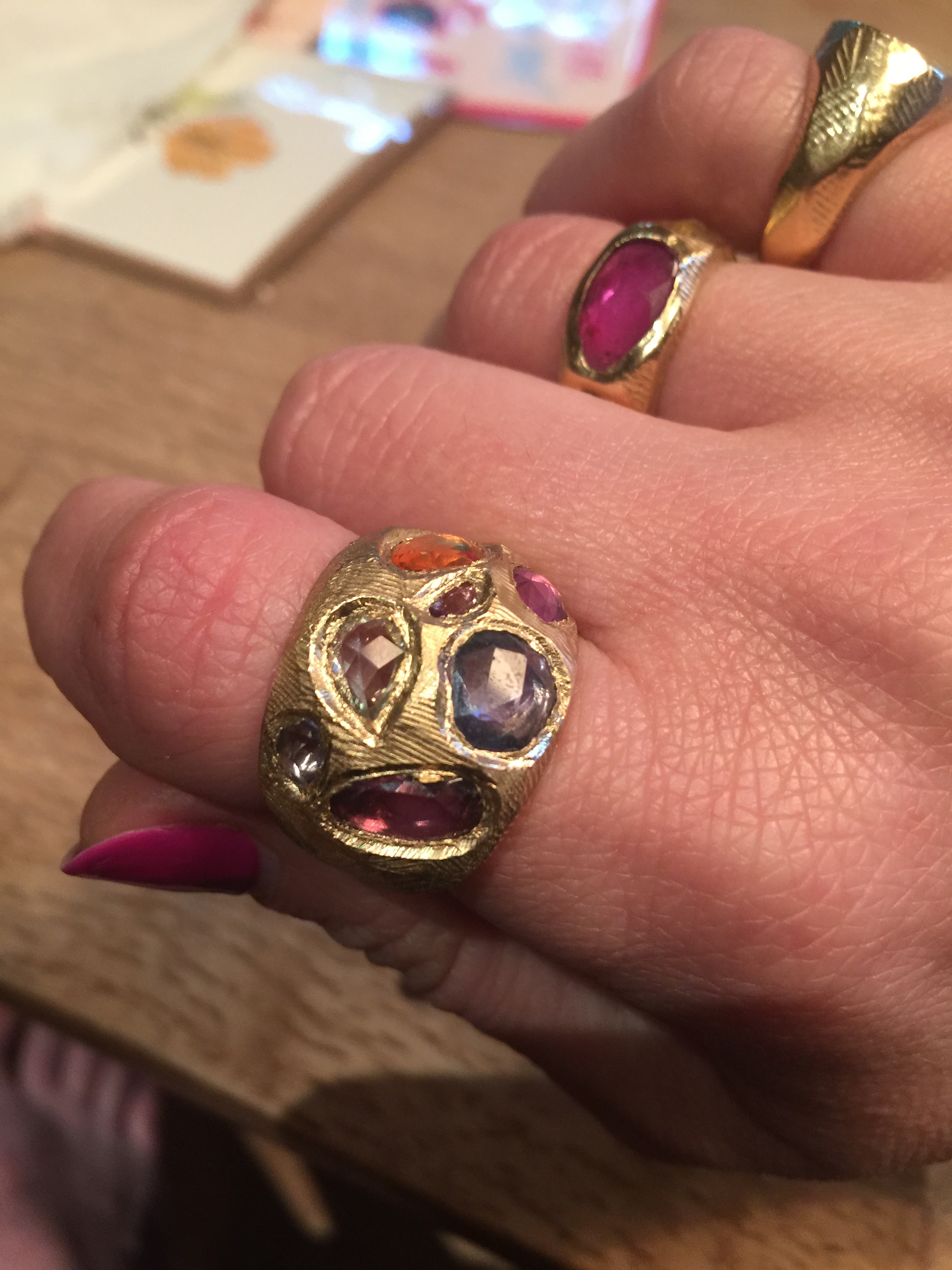
Page’s right hand with different rings which she plays with and changes often
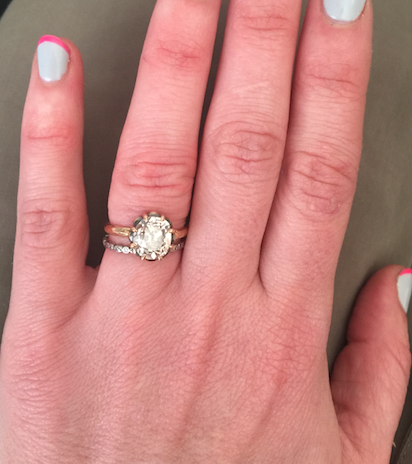
Page’s left hand with her engagement ring which she designed and wedding band from Cathy Waterman

